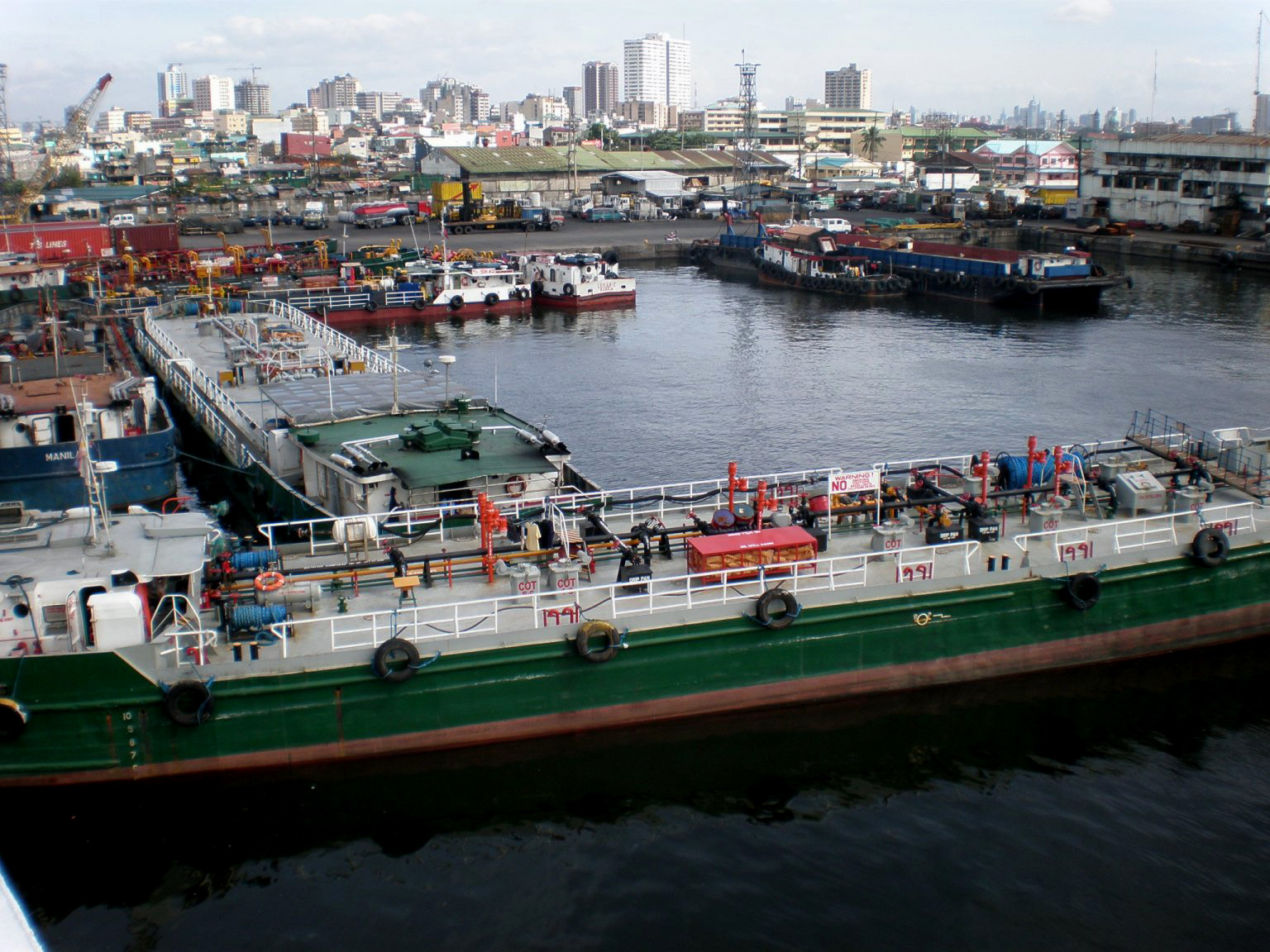
MANILA — The Philippine Ports Authority (PPA) said on Thursday it has started shipping out overstaying containers to Subic in line with its efforts to have more cargo space at the Manila ports this coming Christmas season.
The chartered vessel M/V Asterix left the Manila International Container Terminal (MICT) at 6:50 a.m. Thursday en route to Subic carrying 1,154 twenty-foot equivalent units (TEUs).
The ship is expected to be back in Manila over the weekend to carry the remaining overstaying containers.
The government, through the Bureau of Customs (BOC), the PPA and port operators International Container Terminal Services Inc. and Asian Terminals Inc., has identified about 3,000 TEUs that can be relocated and is in the process of identifying several more to be moved out of Manila.
“The shipping out of these overstaying containers is only one of the few measures aimed at unclogging the ports before the start of the peak season,” PPA General Manager Juan C. Sta. Ana said.
“This will be complemented by the increase in storage fees that will encourage shippers to get their cargoes immediately instead of leaving it inside and use the ports as virtual warehouses,” he explained.
“This will enable the port of Manila to have sufficient port space to take in the influx of cargoes needed for the Christmas season that is expected to come in towards the end of next month,” Sta. Ana added.
He noted that while ports will remain a bit congested in terms of yard capacity, the productivity and efficiency of the two Manila ports are slowly returning back to normal in time for the expected spike in cargo volume.
The MICT, the country’s top international gateway, has an annual capacity of 2.5 million TEUs. It has a surplus capacity of more than 1 million TEUs for the year as it only handled about 1.1 million TEUs, thus far.
The Manila South Harbor, operated by Asian Terminals Inc. (ATI), has an annual capacity of 1.3 million TEUs. It has so far handled 800,000 TEUs and has an excess capacity of about 500,000 TEUs more.
“While it seems that we have a shortage in yard space, it doesn’t mean we don’t have enough capacity. We have the capacity, we just have to work at a slower pace compared to last year,” Sta. Ana explained.
As of the moment, yard utilization at the two Manila ports has returned to 90 percent brought about by the long weekend.
Nonetheless, utilization is expected to go back down to 88 percent at this week’s end after containers being released at ports continue to climb from 4,200 a day to about 4,400 containers a day.
Productivity and efficiency at MICT, on the other hand, has already reached 20 moves an hour, a significant improvement from the 10 to 12 moves an hour two months ago while Manila South Harbor productivity has jumped to 15 moves an hour from only eight moves an hour during the same period.
The PPA, along with the port operators, meanwhile, is trying to maintain the number of empties inside the ports at 12,000 TEUs as it also slowly takes in the 20,000 held-up containers at foreign ports.
As of end-June, the number of laden containers piled up at the Manila ports totaled 85,000 TEUs which occupied about 104 percent of the yard of the ports while the total of empty containers also reached a high of 22,000 TEUs.
The congestion was caused mainly by the day-time truck ban imposed by the city government of Manila from Feb. 24 to end May of this year that practically limited the movement of cargoes in and out of the ports during nighttime only.
The Cabinet Cluster also continues to appeal to the private sector to take advantage of the Saturday, Sunday and Holiday releases to disperse cargo during weekends where traffic and restrictions are low.